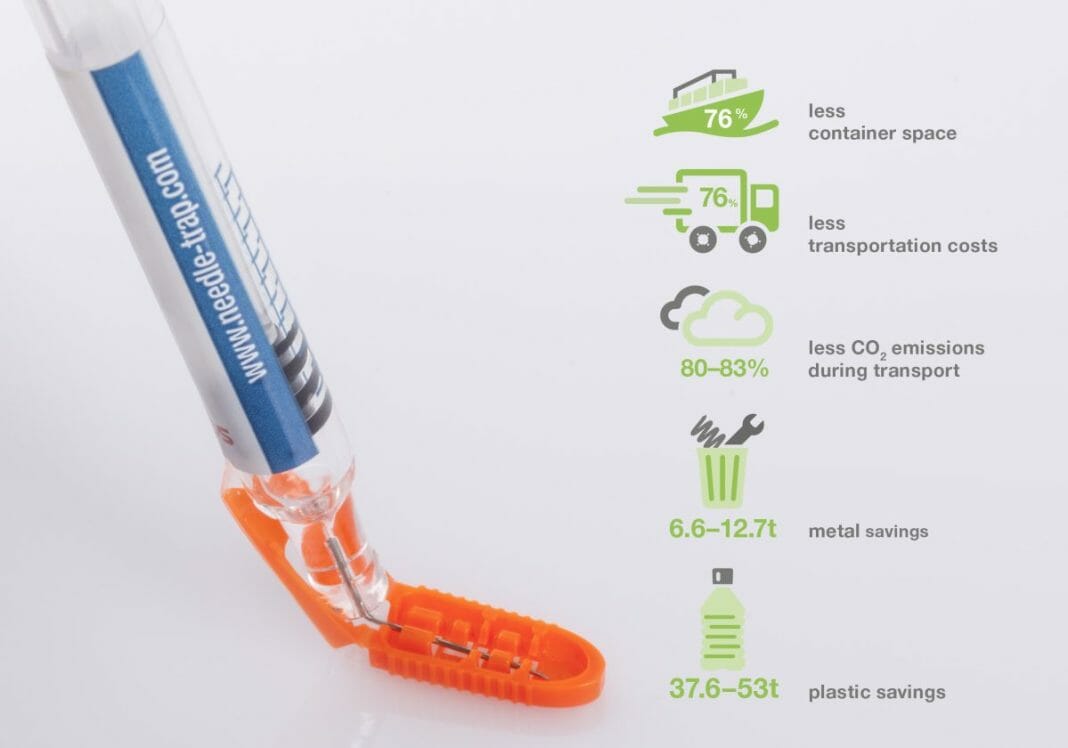Schreiner MediPharm, a Germany-based global provider of innovative functional label solutions for the healthcare industry, has investigated the comparable sustainability of its Needle-Trap safety solution relative to conventional needle safety systems. To evaluate the label’s sustainability, the pharma-label specialist conducted calculations comparing Needle-Trap with conventional needle safety systems.
Needle-Trap proved particularly environmentally friendly primarily due to its special design. Its plastic trap requires less plastic material than conventional needle safety systems and comprises up to 50 percent regranulated material. In addition, due to the label’s compact design, there is no need to adjust its secondary packaging. As a result, Needle-Trap requires less space during transportation and storage. It also generates less waste, which protects the environment and reduces the environmental footprint.
With sustainability playing an increasingly important role in the healthcare industry, it is incumbent upon manufacturers of all products – especially existing ones – to evaluate and optimize their solutions’ materials from an eco-conscious standpoint.
For the testing, calculations were made for 10 million units of one sort for a 1 ml long syringe, and represent best-case scenarios comparing the Needle-Trap label with typical needle safety systems, minus their included syringes. The results provide convincing data supporting Needle-Trap’s superior sustainability:
• 76 percent less space required in cargo containers
• 76 percent less transportation costs
• 80 – 83 percent less CO2 emissions during transport
• 6.6 – 12.7 tons of metal savings
• 37.6 – 53 tons of plastic savings
Furthermore, Needle-Trap’s needle protection label is delivered on rolls – eliminating the need for an additional blister pack – and the grid material waste from label production is recycled.
Consequently, Needle-Trap is a more eco-conscious solution compared with conventional needle safety systems while combining safety for healthcare professionals with cost efficiency for the pharmaceutical manufacturer.



